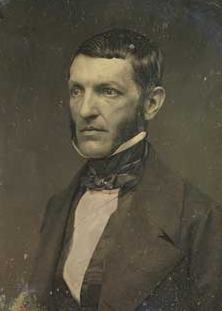“The progress of man consists in this, that he himself arrives at the perception of truth.”
Literary and Historical Miscellanies (1855), The Necessity, the Reality, and the Promise of the Progress of the Human Race (1854)
Contesto: The progress of man consists in this, that he himself arrives at the perception of truth. The Divine mind, which is its source, left it to be discovered, appropriated and developed by finite creatures.
The life of an individual is but a breath; it comes forth like a flower, and flees like a shadow. Were no other progress, therefore, possible than that of the individual, one period would have little advantage over another. But as every man partakes of the same faculties and is consubstantial with all, it follows that the race also has an existence of its own; and this existence becomes richer, more varied, free and complete, as time advances. Common Sense implies by its very name, that each individual is to contribute some share toward the general intelligence. The many are wiser than the few; the multitude than the philosopher; the race than the individual; and each successive generation than its predecessor.
